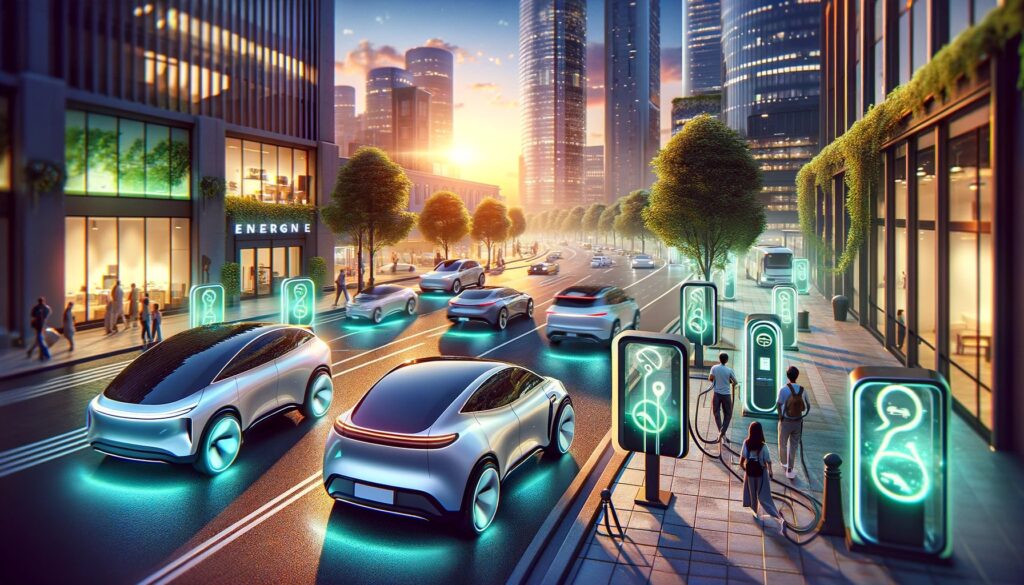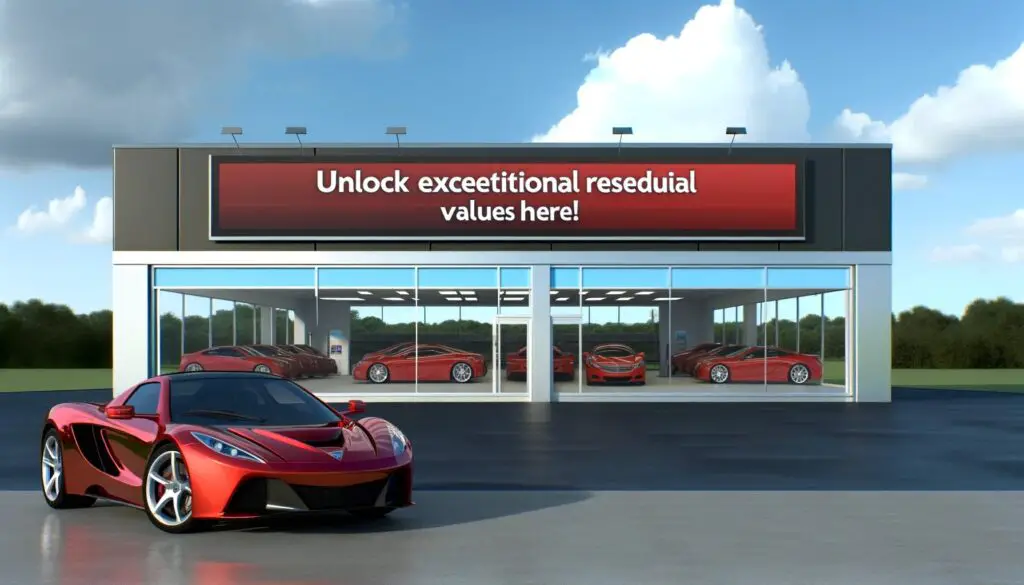In today’s dynamic automotive landscape, the proliferation of electric vehicles (EVs) introduces a paradigm shift in transportation. As more drivers opt for the environmental and economic advantages of EV ownership, understanding and selecting appropriate auto insurance tailored to the unique requisites of electric cars become imperative. In this comprehensive guide, we delve into the intricate realm of electric vehicle insurance, offering valuable insights and recommendations to empower informed decision-making and secure comprehensive protection for your EV.
Understanding the Importance of Electric Vehicle (EV) Insurance
Auto insurance for electric vehicles differs markedly from traditional car insurance, owing to several key factors. These disparities stem from the distinct nature of electric vehicles, including their higher initial purchase prices, specialized repair needs, and unique coverage considerations. Therefore, grasping these differences and adeptly navigating the insurance realm is vital to securing comprehensive protection for your electric vehicle.
1. Higher Initial Purchase Prices:
Electric vehicles typically come with higher initial purchase prices compared to their conventional counterparts. This disparity arises from the advanced technology and specialized components inherent in EVs, such as lithium-ion batteries. As a result, insurance premiums for electric vehicles may reflect these higher values, necessitating tailored coverage to adequately protect your investment.
2. Specialized Repair Requirements:
Unlike traditional gasoline-powered vehicles, electric vehicles feature intricate electrical systems and components that require specialized repair expertise. Repairing or replacing components such as the battery pack necessitates specialized training and equipment, which can impact insurance coverage and repair costs. Understanding these unique repair requirements is crucial when selecting an insurance policy that adequately addresses potential repair needs for your electric vehicle.
3. Unique Coverage Considerations:
Electric vehicles present unique coverage considerations that may not be addressed by traditional car insurance policies. Factors such as battery replacement costs, charging infrastructure damage, and coverage for specialized EV components require careful consideration when choosing an insurance plan. Additionally, insurance providers may offer specific coverage options tailored to electric vehicles, such as coverage for charging station installations or battery-related incidents.
In essence, comprehending the significance of electric vehicle insurance entails recognizing and addressing these distinct factors. By doing so, drivers can navigate the insurance landscape effectively, ensuring comprehensive protection for their electric vehicles against potential risks and uncertainties.
The Rise of Electric Vehicles
Electric vehicles (EVs) have a storied history dating back to the early 19th century, but it’s in recent years that their adoption has surged dramatically. Fueled by advancements in technology and a growing environmental awareness, EVs offer a myriad of compelling benefits that have propelled their ascent in the automotive industry.
1. Technological Advancements:
The evolution of battery technology, coupled with advancements in electric drivetrains, has significantly enhanced the performance and viability of electric vehicles. With improved range, faster charging times, and enhanced energy efficiency, modern EVs offer a practical and sustainable alternative to traditional gasoline-powered vehicles.
2. Environmental Consciousness:
The increasing concern over climate change and air pollution has prompted a shift towards cleaner and greener transportation solutions. Electric vehicles, being zero-emission vehicles, play a pivotal role in mitigating greenhouse gas emissions and reducing air pollution in urban areas, thereby contributing to a more sustainable future.
3. Economic Incentives:
Governments around the world have implemented various incentives and policies to promote the adoption of electric vehicles. These incentives include tax credits, rebates, and subsidies aimed at making EVs more affordable and accessible to consumers. Additionally, initiatives to expand charging infrastructure and invest in renewable energy further bolster the appeal of electric vehicles.
Special Considerations for Electric Vehicle Insurance
Electric vehicles (EVs) present unique insurance considerations due to their distinct characteristics and components. Several factors contribute to the specialized nature of EV insurance, influencing rates and coverage options for EV owners.
1. Battery Replacement Costs:
One of the primary considerations in electric vehicle insurance is the cost of replacing the vehicle’s battery pack. Unlike traditional vehicles, where engine repairs are more common, EVs require periodic battery replacements, which can be a significant expense. Insurance coverage for battery replacement costs is crucial for protecting EV owners from unexpected financial burdens.
2. Specialized Repair Facilities:
Electric vehicles require specialized repair facilities equipped with the necessary tools and expertise to diagnose and repair electrical components. Insurance policies for EVs may include provisions for coverage at certified repair centers, ensuring that repairs are conducted according to manufacturer specifications and standards.
3. Availability of Replacement Parts:
Another factor influencing EV insurance is the availability of replacement parts. Electric vehicles utilize unique components and technology, which may not be readily available compared to traditional vehicles. Insurers may consider the availability and cost of replacement parts when determining coverage options and premiums for EV owners.
In essence, electric vehicle insurance necessitates specialized considerations to adequately address the unique characteristics and requirements of EVs. By understanding these factors, EV proprietors can make informed decisions when selecting insurance coverage to protect their vehicles and investments.
Comprehensive Coverage Options for Electric Vehicles
Insurance coverage for electric vehicles (EVs) typically includes a range of options tailored to address the unique needs and risks associated with EV ownership. Understanding these coverage options is essential for ensuring comprehensive protection for your electric vehicle.
1. Collision and Comprehensive Coverage:
Collision coverage protects against damage to your EV resulting from collisions with other vehicles or objects, while comprehensive coverage provides protection against non-collision incidents such as theft, vandalism, or natural disasters. Together, these coverages offer comprehensive protection for your EV against a wide range of risks.
2. Liability Insurance:
Liability insurance covers bodily injury and property damage liability resulting from accidents where you are at fault. This coverage is essential for protecting you financially in the event of injuries or damages sustained by others in an accident involving your electric vehicle.
3. Personal Injury Protection (PIP):
Personal Injury Protection (PIP) coverage provides reimbursement for medical expenses and lost wages incurred by you and your passengers in the event of an accident, regardless of fault. PIP coverage is particularly important for covering medical expenses associated with injuries sustained in an accident involving your EV.
4. Uninsured/Underinsured Motorist Coverage:
Uninsured/Underinsured Motorist (UM/UIM) coverage protects you in the event of an accident caused by a driver who either does not have insurance or does not have sufficient insurance to cover your damages. UM/UIM coverage ensures that you are adequately protected even if the at-fault driver is unable to compensate you for your losses.
5. Battery Coverage:
Given the unique nature and high cost of electric vehicle batteries, some insurance policies offer specific provisions for battery coverage. This coverage may include reimbursement for repair or replacement costs in the event of battery damage or failure, providing additional peace of mind for EV owners.
6. Roadside Assistance:
Roadside assistance coverage provides assistance in the event of roadside emergencies such as flat tires, dead batteries, or vehicle breakdowns. This coverage is particularly valuable for electric vehicle owners, as it may include services such as towing to the nearest charging station or assistance with charging-related issues.
By evaluating and understanding these comprehensive coverage options, electric vehicle owners can ensure robust protection against potential risks and uncertainties, allowing them to enjoy their EVs with confidence and peace of mind.
Strategies to Lower Electric Vehicle Insurance Costs
Various strategies can help reduce electric vehicle insurance premiums, allowing owners to manage their insurance costs effectively. By implementing these strategies, EV owners can enjoy comprehensive coverage at more affordable rates.
1. Safe Driving Practices:
Adopting safe driving habits can lead to lower insurance premiums for electric vehicles. By maintaining a clean driving record and avoiding accidents and traffic violations, EV owners demonstrate lower risk to insurers, which may result in discounted insurance rates.
2. Higher Deductible:
Opting for a higher deductible can lower insurance premiums for electric vehicles. By agreeing to pay a higher out-of-pocket expense in the event of a claim, EV owners can reduce their insurance premiums while still maintaining adequate coverage for unexpected incidents.
3. Leverage Available Discounts:
Take advantage of available discounts for electric vehicle owners to reduce insurance costs. These discounts may include green vehicle incentives, which reward environmentally conscious driving behaviors, as well as low mileage discounts for EVs that are driven fewer miles annually.
4. Bundle Policies:
Consider bundling your electric vehicle insurance with other insurance policies, such as homeowners or renters insurance, to qualify for multi-policy discounts. Insurers often offer discounted rates to customers who consolidate their insurance policies with the same provider.
5. Maintain Good Credit:
Maintaining a good credit score can positively impact electric vehicle insurance premiums. Insurers may use credit-based insurance scores to assess risk and determine premiums, so maintaining a strong credit profile can result in lower insurance rates.
6. Shop Around:
Compare quotes from multiple insurance providers to find the most competitive rates for electric vehicle insurance. Each insurer may offer different rates and discounts, so shopping around allows EV owners to find the best coverage at the most affordable price.
By implementing these strategies, electric vehicle owners can effectively mitigate insurance costs and enjoy comprehensive coverage tailored to their needs and budget. Taking proactive steps to reduce insurance premiums ensures financial security and peace of mind while driving an electric vehicle.
Frequently Asked Questions: Electric Vehicle Insurance
1. How does the cost of electric vehicle insurance compare to traditional car insurance?
The cost of electric vehicle insurance can vary depending on factors such as the make and model of the EV, battery size, driving history, and location. Generally, insuring an electric vehicle may be slightly higher due to factors like the higher initial purchase price and specialized repair requirements. However, some insurance companies offer discounts for EV owners, such as green vehicle incentives and low mileage discounts, which can help mitigate costs.
2. How can I secure optimal insurance rates for my electric vehicle?
To secure optimal insurance rates for your electric vehicle, consider shopping around and comparing quotes from different insurance providers. Additionally, maintaining a clean driving record, opting for a higher deductible, and taking advantage of available discounts for EV owners can help lower insurance premiums.
3. What should I do if my electric vehicle’s battery is damaged?
If your electric vehicle’s battery is damaged, it’s essential to notify your insurance provider immediately and follow their instructions for filing a claim. Depending on the circumstances and your insurance policy, coverage for battery damage may vary, so it’s crucial to review your policy details and consult with your insurance agent or representative.
4. Do electric vehicle owners qualify for any discounts on insurance premiums?
Yes, electric vehicle owners may qualify for various discounts on insurance premiums. Some insurance companies offer specific discounts and incentives for EV owners, such as discounts for eco-friendly vehicles, low mileage discounts, and incentives for installing anti-theft devices or safety features.
5. What are some prevalent claims filed by electric vehicle owners?
Common claims filed by electric vehicle owners typically revolve around issues such as minor collisions, vandalism, theft, and damage to charging equipment. Additionally, claims related to battery damage or malfunction may also occur, requiring specialized attention from insurance providers well-versed in electric vehicle technology.
Addressing these common queries regarding electric vehicle insurance ensures a comprehensive understanding of the nuances involved, empowering informed decision-making when selecting and managing insurance coverage for your EV.
Conclusion: Safeguarding Your EV Investment with Adequate Insurance
In conclusion, securing robust auto insurance for electric vehicles is indispensable for safeguarding your investment and fostering peace of mind on the road. By cognizing the nuances of electric vehicle insurance and exploring available options judiciously, drivers can adeptly navigate the insurance landscape, embracing the future of driving with confidence and comprehensive protection.





